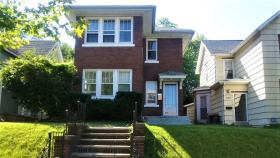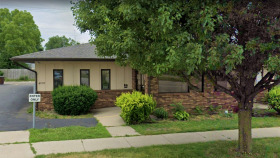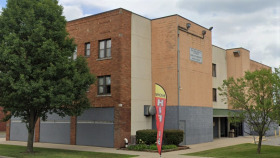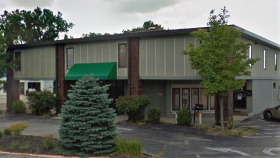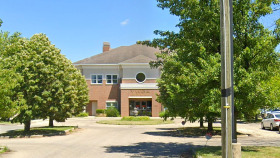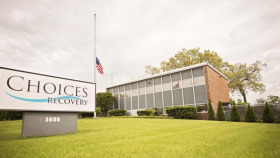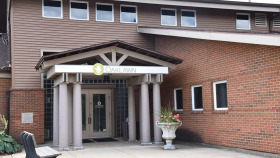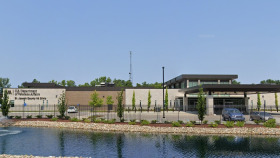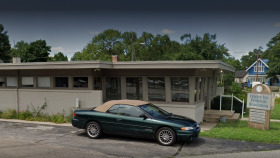Substance Abuse Statistics in South Bend
The following statistics are related to alcohol and drug use in South Bend and St. Joseph’s County, as well as overdoses and treatment admissions:2,4
South Bend is in the North Central region of Indiana, and the drug and alcohol use statistics for that region were as follows from 2016 to 2018:5
Close to 2% of residents 12 years and older used cocaine in the past year.
Less than 1% of residents 12 years and older used heroin in the past year.
Nearly 5% of residents 12 years and older misused pain relievers in the past year.
Paying for Alcohol and Drug Rehab in South Bend
The cost of alcohol and drug rehab shouldn’t hinder you from receiving quality care in South Bend. You may be able to receive rehab services for free from state-funded programs. Alternatively, you can expect part or all the rehab costs to be covered if you receive a rehab scholarship.
Some free drug rehab centers in South Bend and St. Joseph’s County include:
- Oaklawn Psychiatric Center South Bend Campus
- YWCA North Central Indiana South Bend
- Life Treatment Centers
Rehab Scholarships
Some rehab treatment centers provide rehab scholarships to pay for part or the entire cost of your treatment. You can find out more information about the scholarship and the terms by contacting the facility directly. It is vital to ask about the stipulations of the scholarship because some programs may cancel the scholarship if you stop treatment early, and you may have to pay for the care you received.
State-funded Rehabs
The state of Indiana provides state-funded rehab services to residents enrolled in traditional Medicaid or other state programs such as Hoosier Care Connect, Healthy Indiana Plan (HIP), and Hoosier Healthwise.6 You can expect to receive coverage for a significant portion of your rehab treatment under state-funded rehab services.
Private Insurance, Medicare, and Medicaid
You can expect your private health insurance from your employer or individual coverage to cover all or most of your rehab treatment costs. Most rehab centers will accept insurance coverage from companies like United Health, Aetna, Cigna, Blue Shield Blue Cross, and others. You can expect a significant reduction in rehab costs if you use your private insurance. The cost reduction will depend on the insurance company and the plan. You can call the number behind your insurance card to find out details about rehab coverage.
Similarly, Medicaid and Medicare are government insurance plans that can substantially reduce your rehab costs. Medicaid is a state-funded insurance program that provides health insurance for residents with low income and limited financial resources without any age restrictions. You can expect coverage for the following rehab services if you have Medicaid in Indiana:7
- Early Intervention
- Outpatient Services
- Intensive Outpatient Services
- Partial hospitalization
- Clinically Managed Low-Intensity Residential
- Clinically Managed High- Intensity Residential
- Medically Monitored Intensive Inpatient Services
Unlike Medicaid, Medicare is available for people older than 65 years; however, you may qualify before you turn 65 if you have a disability, end-stage renal disease (ESRD), or ALS.8 You can visit the addictions.com website to find long-term or short-term rehabs that accept Medicare and Medicaid. You can get the following rehab services to be covered with Medicare:9
- Outpatient rehab
- Inpatient treatment
- Alcohol misuse screenings
- Partial hospitalization
- Opioid addiction treatment
- Telehealth
The following rehabs in South Bend, Indiana, accept Medicare and Medicaid:
- Oaklawn Psychiatric Center South Bend Campus
- Victory Clinic Services South Bend
- Life Treatment Centers
Resources
- United States Census Bureau. (n.d.). Quick facts: South Bend, Indiana.
- State of Indiana. (2022). Next Level Recovery Dashboard.
- Indiana Department of Health. (n.d.). Aaron’s Law and Indiana’s Good Samaritan Law.
- Indiana University. (2022). Addiction Affects Every Aspect of Hoosier Life.
- Substance Abuse and Mental Health Services Administration. (n.d.). 2016–2018 National Survey on Drug Use and Health Substate Region Estimates for Indiana.
- State of Indiana. (2022). Substance Use Disorder (SUD) Treatment.
- Indiana Family and Social Services Administration. (2020). Indiana Levels of Care: for substance use disorder treatment.
- Medicare.gov. (n.d.). Getting Started with Medicare.
- Medicare.gov. (n.d.). Mental health & substance use disorder services.


